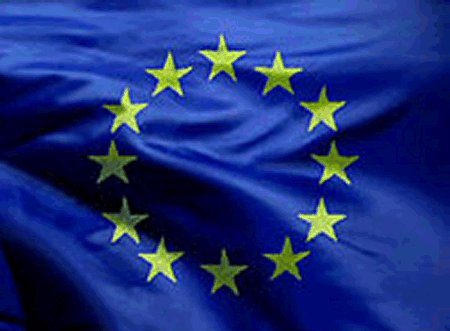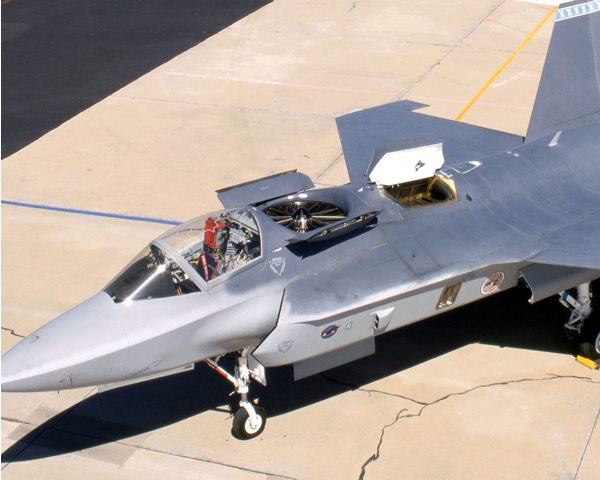The European Union is set to widen its sanctions against Iran when the club’s foreign ministers meet in Brussels on January 23.
The 27 member states are expected to agree on an embargo against Iranian oil exports and might even agree to impose some sanctions on the country’s central bank.
French Foreign Minister Alain Juppe, speaking at a news conference in Paris last week, said sanctions represent the best hope of avoiding “the military option.”
“We have proposed to strengthen these [sanctions] in two fields: an embargo on Iranian oil exports and a freeze on the assets of the Iranian central bank,” Juppe said.
“The American Congress has already made decisions in that direction, they were stamped by [U.S.] President [Barack] Obama, [and] we — the European Union — are working on them, and I think that on Monday, at the EU foreign ministers meeting, we will be able to come to an agreement on a sanctions package in these two areas.”
Two Tracks
The P5+1 group — which includes Britain, France, Germany, China, Russia, and the United States, and is seeking to negotiate an end to Iran’s suspected pursuit of nuclear weapons — has also stressed its openness to renewed talks.
In a statement, EU foreign policy chief Catherine Ashton, who was speaking on behalf of the P5+1, said the group “has always been clear about the validity of the dual-track approach,” referring to the combination of sanctions and diplomacy. However, in the statement Ashton said that Tehran hadn’t yet responded to an October 21 letter which laid out the possibility of talks.
German Foreign Minister Guido Westerwelle, in an appearance at the Brookings Institution in Washington, said the bloc is united in its determination to confront Iran.
”The European Union will put into place a new and very substantial round of sanctions this coming Monday to forcefully make the point that Iran’s behavior on the nuclear issue is unacceptable and a danger to world peace,” Westerwelle said.
Speaking in Washington on January 20 after meeting with Westerwelle, U.S. Secretary of State Hillary Clinton said that Iran is heading down a “dangerous path” with its pursuit of a nuclear program.
Clinton also said that Tehran needed to show that it was serious about recent statements indicating a willingness to return to the negotiating table.
“We all are seeking clarity about the meaning behind Iran’s public statements that they are willing to engage, but we have to see a seriousness and sincerity of purpose coming from them,” Clinton said.
Questions Over Implementation
The main stumbling block is how to freeze the central bank’s assets without blocking legitimate trade with the country and how to avoid hurting the population at large.
And with all EU member states already in agreement that an oil embargo is necessary, question marks remain over when the restrictions will be implemented.
The majority of countries, including France, Germany, and the United Kingdom are hoping to set a July 1 date, the same time scale that the United States decided on when it announced similar measures earlier this month.
This would mean that member states would have until the end of June to fulfill existing contracts but that they would have to stop all imports at the start of July as well as refraining from signing any new contracts after that.
Greece has asked for a longer grace period — of about 9 to 12 months — to line up alternative supplies. The crisis-hit country is heavily dependent on Iranian oil and is relying on easier credit terms from Tehran to finance its purchases.
Both EU and U.S. diplomats are currently working to secure a deal that would replace imports from Iran with oil from Saudi Arabia. Last year, the EU imported 450,000 barrels a day of Iranian crude, constituting about 20 percent of Iran’s total exports.
To ease the concerns of Greece and other large importers such as Spain and Italy, Brussels might also initiate a formal review during the phase-in to ensure that all member states are coping with the disruption.
The attempts to target the central bank are more complicated according to sources who spoke to RFE/RL.
Measures Against Belarus
The European Union also plans to widen the scope of its sanctions against Alyaksandr Lukashenka’s regime in Belarus.
So far it has frozen personal assets and imposed visa bans on more than 200 individuals linked to the regime after the violent crackdown on demonstrators that ensued after the flawed presidential election in 2010.
The foreign ministers are expected to decide that human rights offenders in general as well as individuals that prop up the regime economically also can be blacklisted.
The move represents a step away from the rather narrow remit set before, which only targeted people with a direct link to the persecution of demonstrators against alleged voting fraud.
No new names will however be added to the list on January 23, but EU sources claim that there might be up to 140 names being considered under the new framework.











